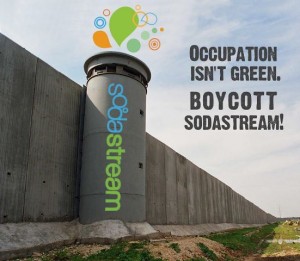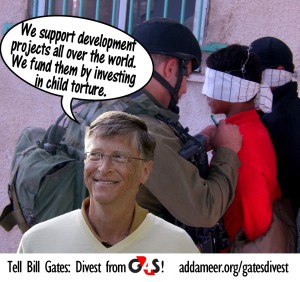2242014 The area of Tulkarm has become synonymous for the number of recycling plants established within the occupied West Bank. The Nitzanei Shalom settlement industrial zone, which Israeli’s refer to as ‘Buds of Peace’, built upon the town of Tulkarm in the early eighties had previously been confiscated by military order, taking thousands of acres of land. The area now contains 7 factories specialising in different form of waste recycling, including household gas and bromine gas used to sterilize farmland, as well as factories for manufacturing nylon, plastics, water filters, fertilizers and pesticides. The waste produced during manufacturing has impacted heavily on people’s health and the environment.
Abu Mujahid worked in the Seoul Orr factory since 2005. The factory recycles household natural gas cylinders, and manufacturing bromine gas for land sterilization. Following the death of a number of workers from cancer and other injuries, like Imad Abu Haesh, Musab, Jihad Dridi residents of Beit Lid, Ahmed Abu Tammam, Mustafa Qasimm, Danny, and the accounts manager Tsevi, we know that this factory does not protect its workers, but was a slave market as Israeli channel 2 and Radio made reference to the harmful conditions. The administration forced workers to work nine hours a day, although Israeli law acknowledged that the working hours per day are only 8 hours and the wage a worker receives for working 9 hours is no more than 60 shekels.
Abu Mujahid states that workers' struggle for their rights in the factory, having asked the factory management to improve working conditions, however, they did not agree, so we decided to go on an open strike in 2007, despite the threat of depriving us of our income. After the negotiations that lasted two weeks workers returned to work and every worker received a 30 shekels increase on wages. They agreed on this with the help of the new Federation of Trade Unions and Workers’ Title Association. He said ‘when we got to know this Assembly it helped us to have a good knowledge of Israeli law and thus are able to know our rights, how to claim and defend them. We learned that Israeli law has been amended so that the Israeli Supreme Court has included the area of factories, and that anyone who works with an Israeli employer is obliged to apply this law’ , which was released in the 10 1 2007. Based on this information this factory does not apply labour law or the law of public safety for workers.
‘With the help of this Assembly, and the assistance of a Palestinian lawyer from the occupied Palestine since 1948, we decided to go on an open strike on 19 10 2007, which lasted for 8 months, with the participation of 80 workers. At that time we received a lot of threats by the owner of the factory. He hired a Palestinian contractor from the occupied Palestine since 1948, a month before we started our strike, so we will work with the contractor and to act as a medium between the workers and the factory owner, but workers rejected it strongly.” The factory owner also tried to bring in other workers, hiring a contractor who brought 40 Sudanese workers, but the factory did not operate as usual. In the 2010 the factory became bankrupt and was dissolved by the companies involved, which has transferred the rights of workers to the office of the National Insurance. After two years of struggle the workers got all their rights and compensation, which was around 5 million shekels. The whole factory was sold to a new company, and its name was changed from Seoul Orr to Bell Jazz and specialising in manufacturing and recycling gas cylinders and tanks.
With regards to workers’ conditions following the change of management and the company that owns the factory, Abu Mujahid states that “now, workers are paid everything that the law states as the minimum wage is 4,300 shekels, for the 8 hours daily work, this is 23.12 shekels and hour. And as the law states each worker takes 6 convalescence days, and if he didn’t use these days he will take 370 shekels for day. Transportation money is covered for all workers according to the area of residence, and for holidays workers have 10 days off a year. And for the first degree relative death a worker takes 3 paid days off. This is the only factory that made a pension fund of 750 shekels a month for its workers.”
Following on from new reforms, the gas used in manufacturing is now burned to minimize damage. Workers are treated with full respect by the managers of the factory, which did not happen when Seoul Orr managed the factory. The factory management has shown a level of care to its workers’ safety, providing first aid and public safety training of personnel. The level of pollution effecting the environment at the time of Seoul Orr administration was perceived to be at extremely high levels die to gas being released into the atmosphere and contaminating the surroundings. Without the workers’ resilience and desire to struggle, employees would not have the fair and safe conditions they fought so hard to secure.




